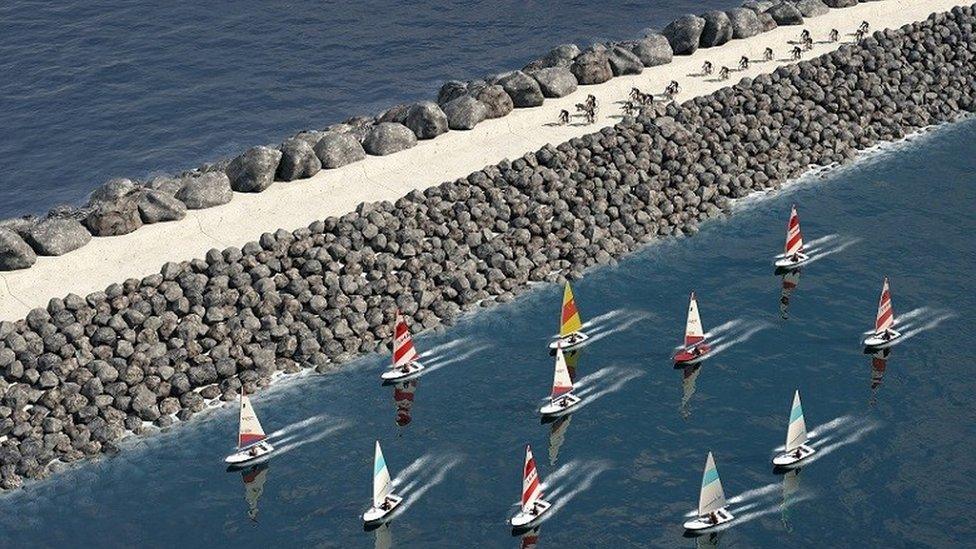Swansea Bay floating island: Public urged to 'embrace' plan
- Published
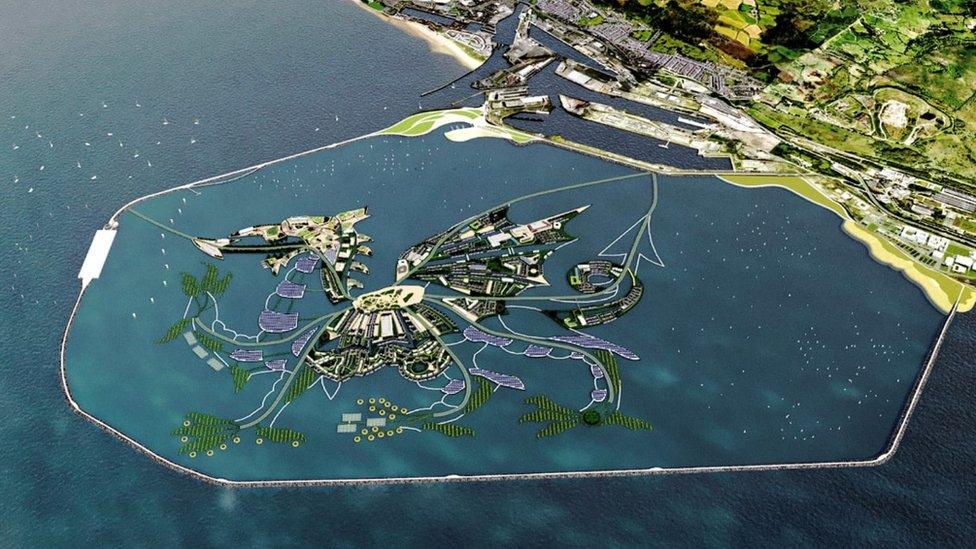
The island would be shaped like the Welsh dragon
People should welcome "visionary" plans for a floating island with up to 10,000 homes in Swansea, a man involved with Dubai's Palm Islands has said.
Malcolm Copson has been working with Swansea Bay City Region's task force on how to revive the failed £1.3bn Swansea Bay Tidal Lagoon project.
The renewable energy scheme was thrown out by the UK government over costs.
But it is claimed the new scheme which would also have underwater turbines to produce electricity would be cheaper.
Plans for "Dragon Energy Island" would see thousands of homes on floating platforms receive power over a period of 120 years and would not need financial backing from the UK government.
Councils and other public sector bodies would be invited to buy electricity generated by the lagoon for a set number of years.
Another idea is to convert some of the electricity produced into high-value hydrogen and oxygen for industrial uses.
Those behind the scheme described it as "ambitious" and said the new plans moved the scheme from an energy project to an infrastructure one.
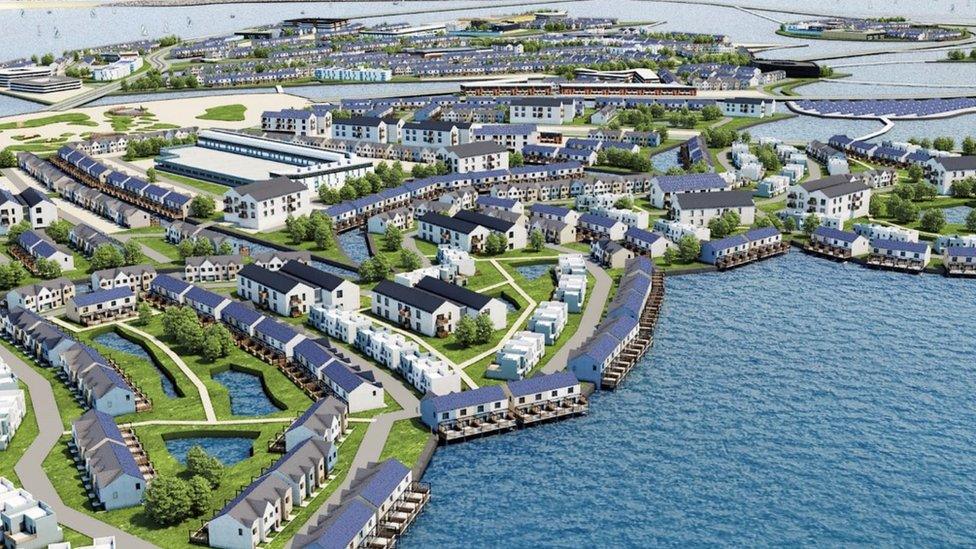
Homes and shops would be spread across the island within the lagoon
Mr Copson said: "If the local population embraces the vision, they can be part of something truly special that puts Swansea Bay on the world map.
"This is a signature project that would put Swansea on the global stage as a visionary city."

Analysis by Sarah Dickins, BBC Wales economics correspondent
The latest plans for a tidal lagoon generating electricity in Swansea Bay are certainly ambitious.
They are in many ways more ambitious than those launched years ago by Tidal Lagoon Power.
But if this latest project is to be anything more than an ambitious pipe dream it has to overcome serious hurdles.
To get financial institutions like pensions funds to invest, it needs to prove that it has long-term customers prepared to sign 30 year contracts to buy the electricity generated at a set price.
Amongst those who spend time debating that subject there is clear division of opinion.
Some think prices will rise steeply as coal and nuclear powered generators retire.
Others argue they will not because we will use less electricity as households and businesses become more energy efficient and we increasingly generate our own electricity on the roofs and even walls of our homes.
The project has other plans for income: floating housing, oxygen and hydrogen production to name a few but the attraction of long-term customers is central to the plan.

Mr Copson added: "There are already several examples of floating, modular home developments across the planet - including Holland, which is below sea level and has a similar climate to Swansea Bay.
"The inclusion of floating, modular housing makes the re-imagined project commercially viable, while also giving people an alternative lifestyle choice that many will find appealing."
An independent report by Holistic Capital, commissioned by the task force, will be discussed by Swansea Bay City Region's joint committee on Tuesday.
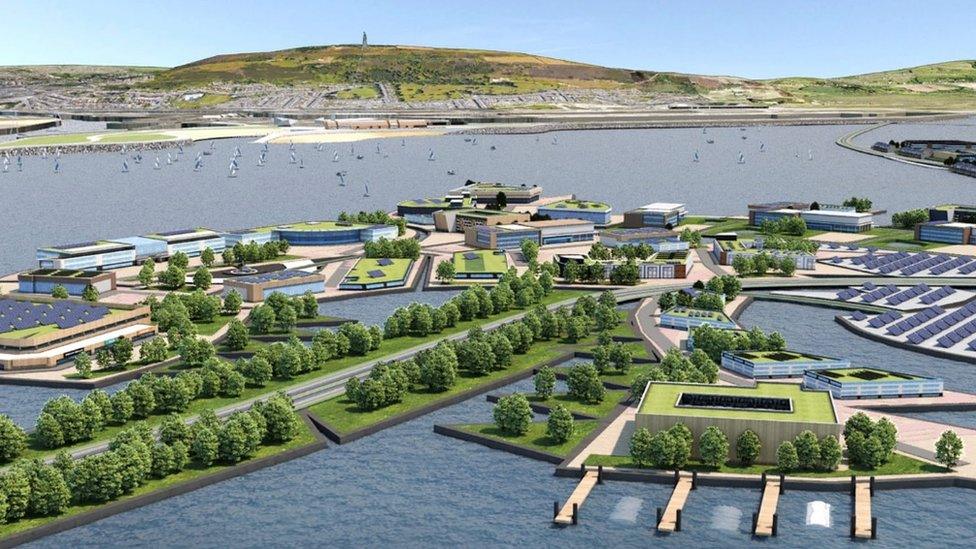
The new plans move the scheme from an energy project to an infrastructure one
- Published21 May 2019
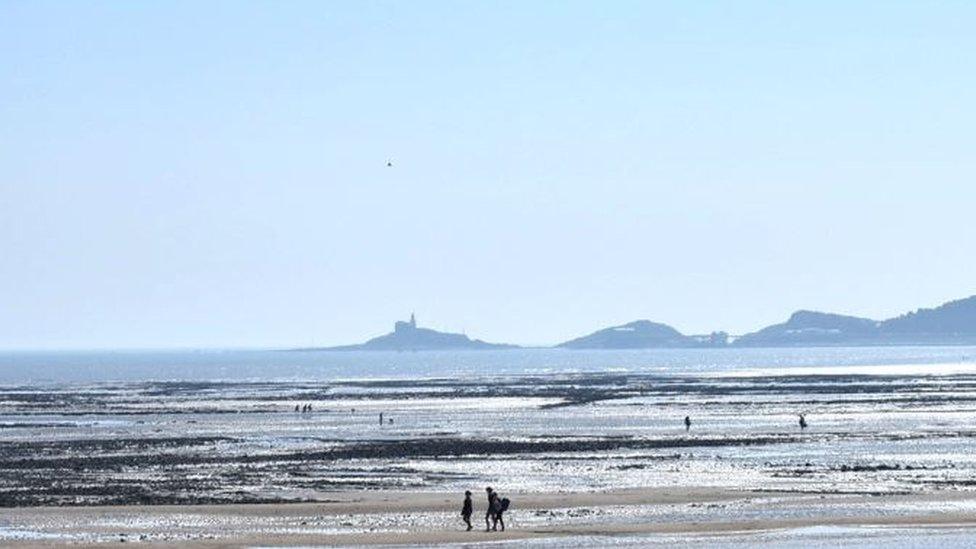
- Published4 December 2018
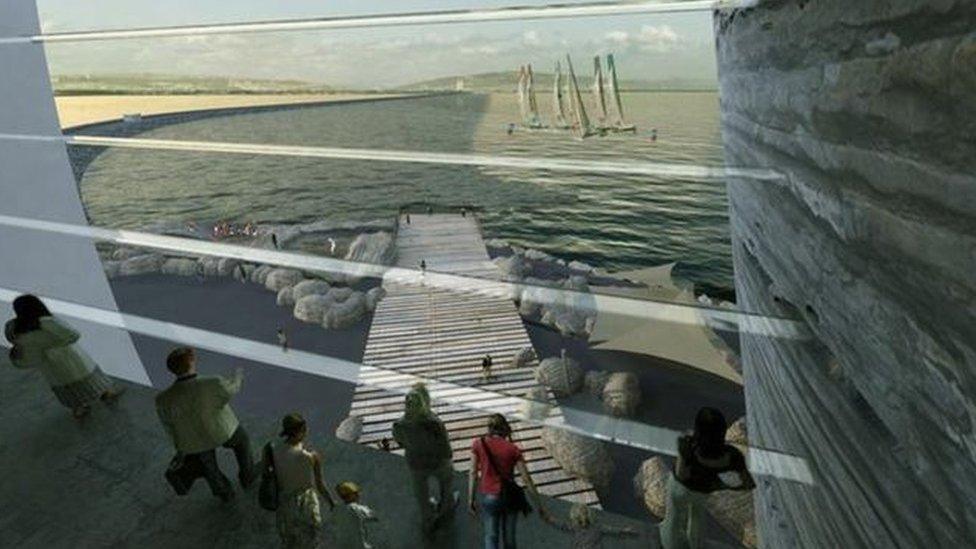
- Published25 June 2018
